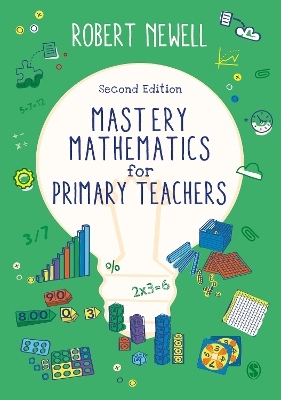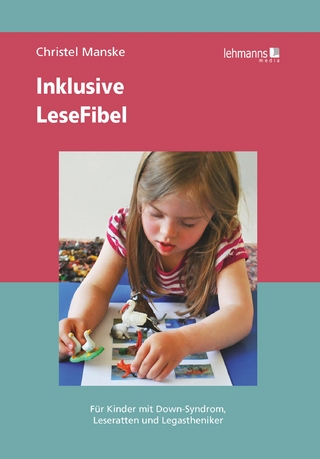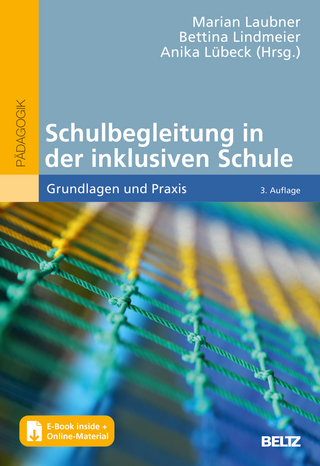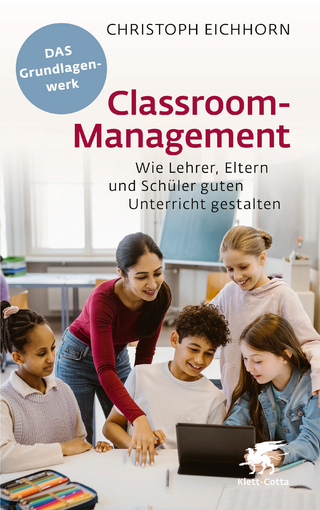
Mastery Mathematics for Primary Teachers
SAGE Publications Ltd (Verlag)
978-1-5297-9219-5 (ISBN)
This book examines how mathematical mastery, influenced by East Asian teaching approaches, can be developed in UK schools to enhance teaching and to deepen children’s mathematical knowledge.
It gives guidance on using physical resources to demonstrate key concepts, extended examples on how to teach different curriculum topics and how to plan for small-step progression.
It argues that effective mastery teaching requires careful and knowledgeable support for primary teachers who may not yet be maths specialists.
New to this second edition:
New chapter on variation theory and practice
Updated case studies exploring how mastery teaching has evolved
Updated review of current mastery resources available to UK teachers
Robert Newell is a lecturer at the UCL Institute of Education, London.
Robert Newell has worked at the Institute of Education (IOE) for 17 years; full time for the last eight. He works with Primary PGCE (Postgraduate Certificate in Education) trainees and Teach First participants. His career started as a primary school teacher, taking responsibility in maths in several schools before progressing to two deputy head posts and then a headteacher role. Primary maths teaching, though, has been his biggest passion. He has worked as a numeracy consultant and also delivered a PGCE Maths programme to a London SCITT (School-Centred Initial Teacher Training centre) for three years. He is now part of a small maths team serving several hundred trainees at the IOE, now merged with UCL (University College London). He has two passions that underpin his work. One is ensuring that primary maths children are taught in a way that engages them and focuses on understanding. The other is the belief that, in the main, it is only anxiety that stops more trainees feeling comfortable about teaching maths. Part of his working role at the IOE is linked to supporting trainees with less secure understanding and allowing them to see how much they can offer. Many realise that although anxiety has affected their self-perception about mathematical understanding, this process can be reversed. His dissertation focused on the different ways trainee teachers can learn to use different levels of understanding effectively in their primary school maths teaching. His writing and work in recent years have focused primarily on empowering trainees and new teachers to fulfil their potential whatever their disposition is or their journey has been. Here, he commits to print a range of ideas and activities, refined over many years and linked to ensuring all primary teachers can teach for understanding. In this edition, his recent work in analysing the mastery approach to teaching maths supports the articulation.
Chapter 1: The Context For Mathematics Teaching
Chapter 2: What Is Mastery Teaching At Primary Level?
Chapter 3: Key Terms And Features Of Mastery Teaching
Chapter 4: Manipulatives: Their Purpose And Use In A Mastery Approach To Teaching
Chapter 5: Planning For Small-Step Progression
Chapter 6: Mastery In The UK
Chapter 7: Teaching For Mastery
Chapter 8: Planning And Schemes Of Work
Chapter 9: Variation In Teaching Theory And Practice
Chapter 10: School Models For Teaching Mastery
Chapter 11: Assessment And Mastery
Chapter 12: Early Years Mastery
| Erscheinungsdatum | 10.07.2023 |
|---|---|
| Verlagsort | London |
| Sprache | englisch |
| Maße | 170 x 242 mm |
| Gewicht | 650 g |
| Themenwelt | Schulbuch / Wörterbuch |
| Sozialwissenschaften ► Pädagogik ► Schulpädagogik / Grundschule | |
| ISBN-10 | 1-5297-9219-3 / 1529792193 |
| ISBN-13 | 978-1-5297-9219-5 / 9781529792195 |
| Zustand | Neuware |
| Haben Sie eine Frage zum Produkt? |
aus dem Bereich


